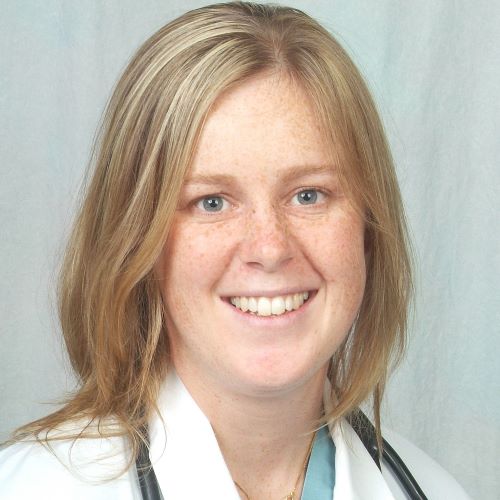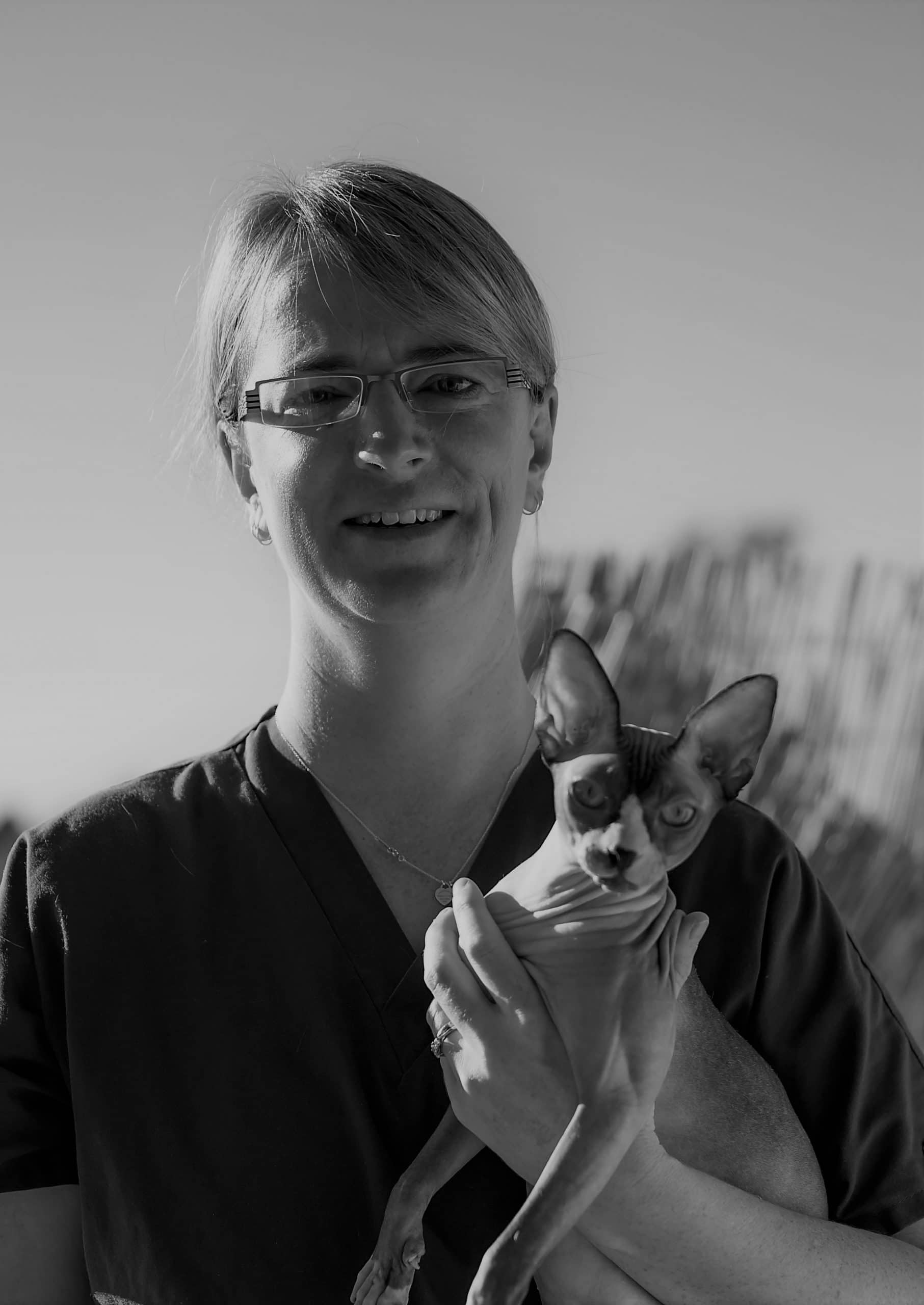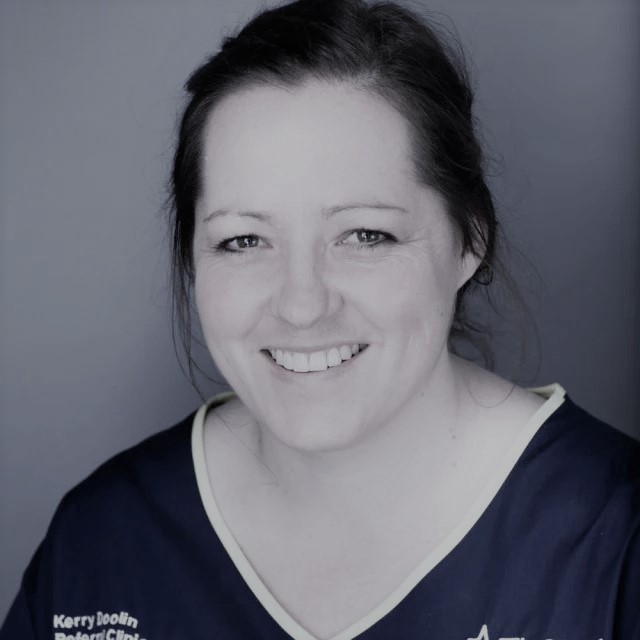This 15 month long, structured program focuses on preparation for the Emergency and Critical Care (ECC) Membership examination & the development of advanced emergency skills.
The Improve ECC Membership Preparation Program is designed to help you consolidate your knowledge in emergency and critical care, get you ready to sit your ANZCVS Membership exams – and get you on the path to becoming the next future critical care specialist!
This advanced modular program runs with 12 specialist developed modules. All broad areas of veterinary emergency and critical care are covered, with learning objectives based around the ANZCVS ECC Membership* Guidelines.
Designed by ECC Specialists & Diplomates, the blended program provides a structured, logical approach to a complex and evolving subject. Relevant and up to date content is presented each month on the online learning platform. End of module assessment tasks are followed up with live online tutorials and direct engagement with your module Specialist.
This exciting modular program is dedicated
to providing a high quality, clinically relevant
training in emergency medicine.
This blended learning program is a combination of live, online and face to face resources and includes comprehensive Module notes, accompanying webinar recordings, resources and Membership-level examinations questions, including key marked answer library.
Supporting online tutorials with the module specialist accompany each of the modules – giving an opportunity for direct individual feedback and Q & A. These sessions are recorded and uploaded to the online learning platform, allowing you to work through materials at your own pace and time.
The final face to face program session is a combination of specialist-run tutorials followed by online one-on-one viva exam prep – essential preparation for delegates pursuing their ECC post-nominal qualifications.
*Improve Veterinary Education does not imply either endorsement of this program or affiliation by/with the Australian and New Zealand College of Veterinary Scientists.
Includes:
"*" indicates required fields

This program has been approved for 150 hours of continuing education credit in jurisdictions that recognise RACE approval.
Enrolment numbers in the ECC Membership Preparation program are strictly limited to provide the best opportunity for delegates.
It is recommended that vets entering this program have completed significant introductory and/or prior personal study in emergency medicine and critical care and to be currently working in clinical veterinary practice.
Please see the Australian and New Zealand College of Veterinary Scientists website directly for their eligibility requirements
Please also note – while this program is designed to prepare those working towards ECC Membership, general practitioners with a strong interest in emergency medicine will gain significant theoretical knowledge with practical applications and skills relevant to all aspects of their clinical work.
If you do not meet the above program prerequisites please refer to the Accelerated Emergency Program as a pathway option.
At the end of this module delegates should be able to:
At the end of this module delegates should be able to:
At the end of this module delegates should be able to:
At the end of this module delegates should be able to:
At the end of this module delegates should be able to:
At the end of this module delegates should be able to:
At the end of this module delegates should be able to:
At the end of this module delegates should be able to:
At the end of this module delegates should be able to:
At the end of this module delegates should be able to:
At the end of this module delegates should be able to:
Describe the pathophysiology, diagnosis and treatment of:
"The calibre of the course content is top class; the information is targeted to the level required to pass membership exams with up-to-date information that cannot be found easily online or in textbooks. I believe that being enrolled in the course and following the study modules was THE reason why I passed the membership exams first time."

Claire is senior lecturer in the College of Veterinary Medicine, Murdoch University, an Associate Professor at Tufts Cummings School of Veterinary Medicine and a boarded Diplomate of the American College of Vet. Emergency & Critical Care. Claire enjoys working busy clinical service as Head of Section in Murdoch Pet Emergency and ICU, while teaching both undergrads and postgrads and pursuing innovative research (in the remaining time!). Claire is a much sort after expert in the ECC field and continuing education sector and takes an active lead in the Australian and international Veterinary ECC communities.

Ellie Leister is the lead Pet Intensive Care Unit (PICU) Veterinarian at Veterinary Specialist Services (VSS) & Animal Emergency Service (AES) in Brisbane.In 2004, Ellie commenced 4 years in mixed practice in country NSW before passing her ANZCVS Member exams and moving to England, where she developed her passion for emergency and critical care.Ellie has worked exclusively as a critical care veterinarian in the PICU in Brisbane since returning from England in 2011.Ellie obtained her Fellowship of ANZCVS in 2019, after completion of her residency in Emergency and Critical Care. She manages a team of 16 people and the PICU operates 24/7.It manages very complex cardiology, oncology, medical and surgical cases as well as every day emergencies.

Vicki graduated from the University of Queensland in 2007 and then completed a rotating internship at Queensland Veterinary Specialists and an ophthalmology internship and residency at Animal Eye Services in Brisbane. During this time she worked weekends in general practice and emergency medicine and obtained her membership of the Australian College of Veterinary Scientists in emergency medicine and critical care. Following her residency she has worked between Animal Eye Services, Brisbane Veterinary Specialist Centre and the Small Animal Specialist Hospital in Sydney. She is currently studying for fellowship examination in ophthalmology in 2015 and particularly enjoys ophthalmic emergencies and a corneal surgical challenge.

Leah is originally a University of Sydney graduate, who pursued her residency training in anaesthesia, analgesia and critical care at the University of Liverpool. In 2005 she was awarded the Royal College Certificate in Veterinary Anaesthesia and in 2008 became a Diplomate of the European College of Veterinary Anaesthesia and Analgesia. On her return to Australia, Leah worked at the University of Melbourne Veterinary Hospital and also the Small Animal Veterinary Teaching Hospital, Charles Stuart University, teaching and running clinical anaesthesia services. Leah remains an adjunct professor at CSU and also provides specialist consultancy and education to veterinarians and nurses via the business she founded in 2015,Veterinary Anaesthesia Specialists.

Dr Yenny Indrawirawan is a Fellow of the Australian and New Zealand College of Veterinary Scientists in Veterinary Emergency and Critical Care. She graduated in 2004 from the University of Melbourne. She has been working in various small animal emergency and critical care hospitals in Australia since graduation. She undertook emergency and critical care residency at Animal Accident and Emergency in Melbourne, and spent her externship at various institutions in the USA. She is now working at the Veterinary Referral Hospital in Melbourne, Australia. Yenny has been mentoring general practitioners that are sitting their Membership of the ANZCVS in Emergency and Critical Care. She is actively involved in the Membership and Fellowship examination process with the ANZCVS. She is currently supervising a ANZCVS residency program in Veterinary Emergency and Critical Care.

Dr Niek Beijerink graduated with veterinary degree from Utrecht University in The Netherlands. He completed a PhD (canine endocrinology and reproduction) in 2007 and then a residency in Small Animal Cardiology in 2010. He is a Diplomate of European College of Veterinary Internal Medicine (Cardiology). Dr Beijerink commenced working as a Specialist in Small Animal Cardiology at Sydney University in August 2011, and is responsible for the clinical service and teaching in this area. Some of his active research interests are heart failure therapy, cardiac CT imaging, and stem cell therapy for heart disease.

CEO Animal Emergency Australia Rob graduated from University of Queensland in 2000, went into emergency medicine and never left. He is a founding partner of the Animal Emergency Service (2005). He commenced residency training (2006-2012) in emergency and critical care under the supervision of Professor Steve Haskins, attaining FANZCVS qualifications in 2014. Rob is a registered specialist and one of only 5 Fellows of the Australian and New Zealand College of Veterinary Scientists in Emergency and Critical Care. Rob works with multiple business partners to develop Animal Emergency Service into an organisation which helps veterinary professionals fulfill their dreams. The group has 6 emergency and critical care hospitals and a dedicated intensive care unit (Pet ICU). The company partnered with Improve International in 2018 with a shared aim of delivering exceptional veterinary education and training. As well as veterinary business, Rob continues to work as an emergency veterinarian, supervises a resident training program in emergency and critical care, participates in collaborative research projects, and teaches EMCC to veterinarians and veterinary students across Australia. Rob’s dreams are to see tick paralysis eliminated as a cause of death of dogs and cats in Australia, and for Animal Emergency Service to be the place emergency vets come to save the sickest pets and build the future of emergency medicine and critical care.

American Recognised Specialist in Emergency and Critical Care
I graduated from the University of Sydney in 2005 and spent several years as an emergency clinician in private practice in Sydney, Australia before completing an Emergency and Critical Care internship at the University of California, Davis. I then completed an Emergency and Critical Care Residency at the Royal Veterinary College in London. For the last four years I have worked in a private practice emergency and specialty hospital, currently based in Glasgow. In 2019, I became board certified as a Diplomate of the American College of Veterinary Emergency and Critical Care.


Dr Trudi McAlees is a New Zealand veterinarian and Massey graduate who after starting her career in a mainly dairy practice, headed off to the UK for the obligatory period of locum work and travel. After a short period in small animal practice in Auckland, Trudi then moved to Melbourne to pursue a 2-year position in Emergency Medicine and Critical Care at the University of Melbourne teaching hospital but stayed for 10 years before returning to private practice. Trudi is committed to post-graduate education. She is passionate about improving the ability of practitioners to deal with emergencies, and hopes to decrease the anxiety that can accompany these cases when they present. Trudi has a particular interest in analgesia, ventilation and multi-trauma cases. Trudi has memberships of the Australian & New Zealand College of Veterinary Scientists in Anaesthesia and Critical Care, and in Emergency Medicine and Critical Care and was the first person to achieve Fellowship in Emergency Medicine and Critical Care in 2008.

Originally from Melbourne, Dr Hicks undertook specialist training at Melbourne and Murdoch Universities, as well as two years of advanced surgical training in the US. She successfully passed fellowship examinations through the Australian and New Zealand College of Veterinary Scientists and became a registered specialist in 2012. Merrin has published numerous peer-reviewed articles, presented at conferences both in Australia and overseas, completed a Masters of Veterinary Science at the University of Melbourne, and taught both students and graduate veterinarians in universities in Australia and the US. For four years, Merrin was a founding director at the Centre for Animal Referral and Emergency (CARE), now one of the largest specialist hospitals in Melbourne, before joining the Animal Referral Hospital in 2016. Merrin enjoys all aspects of emergency medicine and critical care, in particular surgical emergencies, trauma, and blood gas analysis. She lives with her partner, young daughter, two dogs and a cat and enjoys surfing in her spare time.
Full Payment Upfront: Total payable AU$8,995.00 inc GST
All prices are inclusive of compulsory 10% GST.
Payment plans may be available. A member of the Improve team will be in touch to discuss your individual requirements.
Please note that an administration fee applies for all payment plans.
All prices are inclusive of compulsory 10% GST.
Terms and Conditions apply to all bookings.
Please find the terms and conditions here.
You must be a graduated Veterinary Surgeon with a minimum of 1 year clinical experience. Please check with Improve, to ensure your suitability. It is the responsibility of the delegate to ensure you meet the program entry criteria.
To complete the monthly Modules, you will need to allow around 12 – 20 hours. Some modules have more content, while others may require more independent reading.
Delegates who submit full responses for the end of Module exam questions and who read widely may spend considerably more time studying/preparing than above.
Membership of the Australia & New Zealand College of Veterinary Scientists, is an official recognition of a veterinarian’s knowledge and experience in a designated field of veterinary science. Membership is an indication to the profession and the general public of an advanced practitioner, representing a middle-tier of knowledge, competence and experience in a specific area of veterinary practice. Membership is not a specialist qualification. Membership requires examination with members signified by post-nominals MANZCVS.
To find out more about ANZCVS Membership Exams please click here & eligibility criteria for Membership please contact the College via their website (https://www.anzcvs.org.au/membership/)
Improve International Australia does not imply any endorsement of this program by the Australian and New Zealand College of Veterinary Scientists nor any affiliation with the College.
Yes, you can! We encourage all vets who are looking for an in-depth structured program covering all ECC topics to enrol (see below). All content is online (apart from the optional final face-to-face weekend with its Membership exam focus) and attendance at the virtual sessions and tutorials mean you don’t have to travel. All sessions are also recorded and put up on the learning platform.
Some modules may contain content that is specific to conditions found in the Australia/New Zealand region.
Absolutely! While this comprehensive program is designed to prepare those working towards ECC Membership, general practitioners with a strong interest in emergency medicine will gain advanced knowledge with practical applications and skills relevant to all aspects of their clinical work – from anywhere in the world.
The structured program has learning objectives that broadly cover the field of Emergency and Critical Care and are a comprehensive coverage of this topic.
The online modules are released on the 1st of each month. The follow-up live tutorial and Q&A for each module runs the first week of the following month. A full schedule of dates is available to enrolled delegates.
At the end of each module there are a series of Membership level questions provided to test your knowledge. The two hour tutorial on ZOOM is a live virtual classroom, hosted by the Module specialist to review the answers (full model answers with marking key are provided prior to the tutorial). Q&A opportunities are encouraged.
All the Zoom tutorials will be recorded and available on the learning platform within 24 hours of completion, for your viewing at a time that suits. However, we do strongly recommend attending and engaging in the live tutorials.
Yes! A discussion board/forum is available to all delegates to post questions, comments and engage with others in the program. The forum is not moderated by your module specialist, but any unanswered questions will be submitted to the specialist to be covered at the module tutorial.
Zoom is a cloud-based meeting room. You will be sent a link to cut and paste into your browser to join your tutorial.
There is a Zoom app you can download for ease of use, but you can also access the tutorial by going to https://zoom.us/, click on ‘Join a meeting’ and cut and paste the provided Zoom meeting link into meeting ID.
Please see Zoom support for full access requirements: https://support.zoom.us/hc/en-us/articles/201362023-System-Requirements-for-PC-Mac-and-Linux
